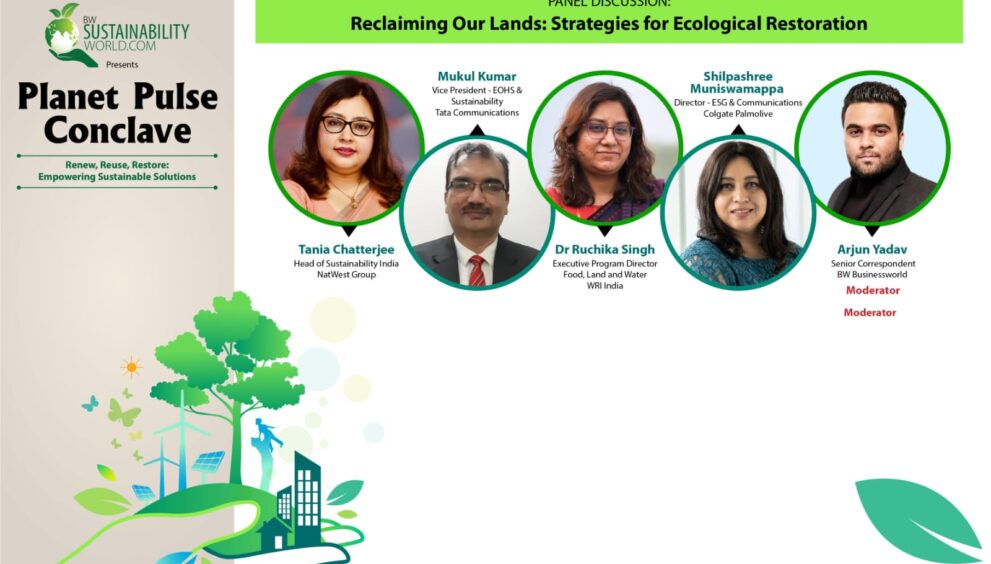India’s Ecological Restoration Efforts May Cut Impacts Of Climate Change

There is a necessity of integrating ecological restoration into broader sustainability frameworks which can be seen as India has pledged to reach land-degradation neutrality by 2030
In India, about 30 per cent of land area — equal to that of Madhya Pradesh, Maharashtra, and Rajasthan put together — has been degraded due to soil erosion, over-cultivation, deforestation, over exploitation and mismanagement. A major part of soil depletion has happened due to land overuse and the kind and quantity of products we pour on it. India State of Forest Report (2019) data show that 2,145 sq km of dense forests have become non-forests since 2017.
In the past two years alone, a total of 32,640 hectares of forest land have been diverted for roads, irrigation, mining and other development projects, causing forest fragmentation. Mukul Kumar, Vice President of EOHS and Sustainability at Tata Communications, emphasised the indispensable role of ecological restoration. Highlighting the UN Decade on Ecosystem Restoration aimed at halting ecosystem degradation by techniques such as tree planting, coral rehabilitation and invasive species eradication, which enhances biodiversity, improves air and water quality, and bolsters overall well-being, Kumar said.
He also talked about Tata Communications’ efforts, including the rejuvenation of Nanganthangal Lake in Tamil Nadu for groundwater recharge and biodiversity enhancement and a biodiversity conservation program at their Pune campus.
Executive Program Director of Food, Land and Water at WRI India, Ruchika Singh stressed the criticality of land-based solutions in mitigating climate change and building resilience for local communities.
She advocated for a landscape approach to ecological restoration, integrating economic, social and environmental objectives to manage resources effectively and consider trade-offs between conservation and development.
Whereas, Shilpashree Muniswamappa, Director of ESG and Communications at Colgate Palmolive, discussed her company’s dual focus on reforestation and water body rejuvenation, particularly in Maharashtra and Rajasthan.
Muniswamappa highlighted successful collaborations with local governments to unlock funding and engage communities, ensuring long-term sustainability by citing the example of Amravati, where efforts to provide clean drinking water, rejuvenate land and improve school facilities have empowered local villages to maintain these initiatives independently.
Tania Chatterjee also talked about her company’s initiatives which include wetland and water body conservation in Chennai, Bangalore and Gurgaon, and promoting sustainable agriculture in Madhya Pradesh. Chatterjee is the head of Sustainability India at NatWest Group. There is a necessity of integrating ecological restoration into broader sustainability frameworks which can be seen as India has pledged to reach land-degradation neutrality by 2030, under the United Nations Convention to Combat Desertification.
Also, India’s Nationally Determined Contribution commitment under the Paris Agreement envisages additional forest and tree cover for creating a carbon sink capacity of 2.5 to 3 billion tonnes of CO2 equivalent, by 2030. As the world strives to get on a path of green recovery, India is trying to reimagine development and ramp up efforts for reclaiming and restoring the health of ecosystems, paving the way for a healthy planet with healthy people.





































































































































































































































































































































































































































































































































































































































































































































































































































































































































































































































































































































































































